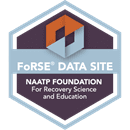The most common characteristic of alcoholics and addicts is defiance. Seriously, we are defiant and independent people. However, we are defiant to a fault. For most of us, it goes way beyond simply not being a pushover or marching to the beat of our own drum. For many of us, our defiant streak goes too far. We rebel even against sound advice or good reason. We are so unwilling to follow orders that we even ignore good sense much of the time. When defiance manifests like this, it can be extremely troublesome. Surely any of us can reach back into our past experiences and easily find a handful of times when our defiance caused us more trouble than it was worth. This is true for almost all alcoholics and addicts.
If defiance is so common amongst us, but also so troublesome, what are we to make of it? And why does it vex so many of us? Well, the literature of recovery (affectionately known as the Big Book of Alcoholics Anonymous) has plenty to say about defiance and what we can do about it. The first step in putting our defiance in its proper place is to accept that we have to work the Twelve Steps. First things first — let’s at least try to curb our defiance long enough to get our lives saved, right? If we can listen to the suggestions of our sponsor and follow the guidance in the Big Book, we are not only well on our way to easing our defiant streak. We are also taking our first steps into freedom and recovery.
But we must do our best to keep our attitudes out of the way as we work the Twelve Steps. We will want to defy, to do it our way or not do it all. If we give in to this, we put our very lives at risk, for we may not find recovery if we resist the Steps. However, if we can follow the guidance of our sponsor and the Big Book and work the Twelve Steps honestly, open-mindedly, and willingly, great things will begin to happen for us. Once we’ve made it past the 10th Step, the Big Book says this: “Love and tolerance of others is our code. And we have ceased fighting anything or anyone — even alcohol. For by this time sanity will have returned.”
Yes, sanity returns to us in the process of working the Steps. That’s a good enough reason on its own to work the program of recovery, but it’s far from the only benefit. Love and tolerance of others is indeed our code. But suffice to say that we alcoholics and addicts often only learn to be loving and tolerant through working the Twelve Steps. What about the “we have ceased fighting” part? What exactly does that mean? Let’s dig in.
Cease Fighting
Does ceasing fighting anything and anyone just mean that we quit? Give up? Roll over? Absolutely not! Ceasing the fight does not mean that we become pushovers or doormats. In fact, the Big Book says that we kneel before none but our higher power. What it does mean is that we let our higher power reign in our defiance, we begin to accept instruction and guidance, and we quit resisting the forces of good working through us.
What does it mean to cease fighting alcohol? It means that by working the Twelve Step process continuously, we are put in what’s called the position of neutrality. This means that we don’t even think about drugs or alcohol anymore — it’s simply something we don’t do. And we’re able to stay sober and in recovery without having to fear, resist, or fight the mental obsession that used to plague us. That’s huge!
But how do we get to this place where we can cease fighting everything and everyone, including drugs and alcohol? The answer may not surprise you, but it’s absolutely true: we work the 12-Step program of recovery continuously and in its entirety. The Twelve Steps are the best game in town when it comes to living a life of meaningful, happy freedom and recovery. However, there are some other things we can keep in mind to help us with this goal as we work the Steps.
Acceptance
Acceptance doesn’t mean we just let everything happen to us and we never change anything. That’s apathy. Acceptance simply means that we accept things as they are, people as they are, and situations as they are. We let things be what they are, understanding that the only thing we can ever really change is ourselves. We still take action and we still have drives and desires, but acceptance lets us see the truth and make the changes where they’re actually possible — within ourselves.
Open-Mindedness
Keeping an open mind doesn’t mean that we are wishy-washy or susceptible to everything we hear. But it does mean that we listen intently to advice and guidance, consider it carefully, and take it to counsel with our higher power. Open-mindedness simply means that we are willing to consider and take suggestions and guidance that are given in our best interest. We don’t have to take everyone’s advice all the time to be open-minded, but we put ourselves in a very bad spot if we aren’t at least open-minded when it comes to our higher power and our sponsor. We must be willing to hear the ideas of others and to keep ourselves from immediately defying advice that might save our lives. If doing everything our own way had ever worked, we wouldn’t need the 12-Steps. But we do, so maybe doing it all our own way isn’t always the best bet.
At Jaywalker Lodge, we believe in the power of the Twelve Steps and the 12-Step program of recovery. This is the foundation for all we do at Jaywalker Lodge, and for many of us it’s the foundation of our personal and private lives, too. We believe in the Twelve Steps so wholeheartedly because they work for us, and we were once in the same position you’re in now. We struggled to achieve or maintain our recovery, and we struggled with alcoholism and addiction. Now, thanks to the 12-Step program, we live lives filled with meaning, happiness, and freedom — and we very much want to share that lifestyle with you. No matter what your story is, no matter how many times you’ve tried and stumbled before, we believe that Jaywalker Lodge can make the difference in your life and in your recovery. If you’re ready and willing to begin again, Jaywalker Lodge is ready to help you. Call us now at (866) 529-9255.



As Chief Executive Officer Bill provides leadership and manage all day-to-day operations of Jaywalker Lodge, an extended care residential addiction treatment program for adult men.




